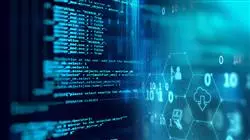University certificate
The world's largest faculty of information technology”
Introduction to the Program
This Postgraduate PROGRAM will allow you to update your knowledge in Automata Theory and Formal Languages in a practical way, 100% online, without renouncing to the maximum academic rigor”

This program is intended for those interested in reaching a higher level of knowledge in Automata Theory and Formal Languages. The main objective is for students to specialize their knowledge in simulated work environments and conditions in a rigorous and realistic manner so they can later apply it in the real world.
This program will prepare students for professional practice of computer engineering, thanks to a transversal and versatile training adapted to new technologies and innovations in this field. You will obtain extensive knowledge in Automata Theory and Formal Languages, from professionals in the sector.
The students will be able to take the opportunity and study this program in a 100% online format, without neglecting their obligations.
Learn the latests techniques and strategies with this program and achieve success as an IT Engineer”
This Postgraduate certificate in Automata Theory and Formal Languages contains the most complete and updated educational program on the market. Its most outstanding features are:
- Development of 100 simulated scenarios presented by experts in Automata Theory and Formal Languages
- Its graphic, schematic and eminently practical contents provide scientific and practical information on Automata Theory and Formal Languages
- News on the latest developments in Automata Theory and Formal Languages
- Contains practical exercises where the self-assessment process can be performed to improve learning
- Interactive learning system based on the case method and its application to real practice
- All of this will be complemented by theoretical lessons, questions to the expert, debate forums on controversial topics, and individual reflection assignments
- Content that is accessible from any fixed or portable device with an Internet connection
Get qualified in Automata Theory and Formal Languages with this intensive program, from the comfort of your own home”
It includes in its teaching staff professionals belonging to the field of computer engineering, who pour their work experience into this program, in addition to recognized specialists belonging to reference societies and prestigious universities.
Thanks to its multimedia content elaborated with the latest educational technology, this program will allow the professional a situated and contextual learning, that is to say, a simulated environment that will provide an immersive learning programmed to work in real situations.
The design of this program focuses on Problem-Based Learning, by means of which the teacher must try to solve different professional practice situations that arise during the academic year. For this purpose, the professional will be assisted by an innovative interactive video system created by renowned experts in Automata Theory and Formal Languages with extensive teaching experience.
Take advantage of the latest educational technology to get updated in Automata Theory and Formal Languages without leaving home"

Learn the latest techniques in Automata Theory and Formal Languages from experts in the field"
Why study at TECH?
TECH is the world’s largest online university. With an impressive catalog of more than 14,000 university programs available in 11 languages, it is positioned as a leader in employability, with a 99% job placement rate. In addition, it relies on an enormous faculty of more than 6,000 professors of the highest international renown.

Study at the world's largest online university and guarantee your professional success. The future starts at TECH”
The world’s best online university according to FORBES
The prestigious Forbes magazine, specialized in business and finance, has highlighted TECH as “the world's best online university” This is what they have recently stated in an article in their digital edition in which they echo the success story of this institution, “thanks to the academic offer it provides, the selection of its teaching staff, and an innovative learning method aimed at educating the professionals of the future”
A revolutionary study method, a cutting-edge faculty and a practical focus: the key to TECH's success.
The most complete study plans on the university scene
TECH offers the most complete study plans on the university scene, with syllabuses that cover fundamental concepts and, at the same time, the main scientific advances in their specific scientific areas. In addition, these programs are continuously being updated to guarantee students the academic vanguard and the most in-demand professional skills. In this way, the university's qualifications provide its graduates with a significant advantage to propel their careers to success.
TECH offers the most comprehensive and intensive study plans on the current university scene.
A world-class teaching staff
TECH's teaching staff is made up of more than 6,000 professors with the highest international recognition. Professors, researchers and top executives of multinational companies, including Isaiah Covington, performance coach of the Boston Celtics; Magda Romanska, principal investigator at Harvard MetaLAB; Ignacio Wistumba, chairman of the department of translational molecular pathology at MD Anderson Cancer Center; and D.W. Pine, creative director of TIME magazine, among others.
Internationally renowned experts, specialized in different branches of Health, Technology, Communication and Business, form part of the TECH faculty.
A unique learning method
TECH is the first university to use Relearning in all its programs. It is the best online learning methodology, accredited with international teaching quality certifications, provided by prestigious educational agencies. In addition, this disruptive educational model is complemented with the “Case Method”, thereby setting up a unique online teaching strategy. Innovative teaching resources are also implemented, including detailed videos, infographics and interactive summaries.
TECH combines Relearning and the Case Method in all its university programs to guarantee excellent theoretical and practical learning, studying whenever and wherever you want.
The world's largest online university
TECH is the world’s largest online university. We are the largest educational institution, with the best and widest online educational catalog, one hundred percent online and covering the vast majority of areas of knowledge. We offer a large selection of our own degrees and accredited online undergraduate and postgraduate degrees. In total, more than 14,000 university degrees, in eleven different languages, make us the largest educational largest in the world.
TECH has the world's most extensive catalog of academic and official programs, available in more than 11 languages.
Google Premier Partner
The American technology giant has awarded TECH the Google Google Premier Partner badge. This award, which is only available to 3% of the world's companies, highlights the efficient, flexible and tailored experience that this university provides to students. The recognition as a Google Premier Partner not only accredits the maximum rigor, performance and investment in TECH's digital infrastructures, but also places this university as one of the world's leading technology companies.
Google has positioned TECH in the top 3% of the world's most important technology companies by awarding it its Google Premier Partner badge.
The official online university of the NBA
TECH is the official online university of the NBA. Thanks to our agreement with the biggest league in basketball, we offer our students exclusive university programs, as well as a wide variety of educational resources focused on the business of the league and other areas of the sports industry. Each program is made up of a uniquely designed syllabus and features exceptional guest hosts: professionals with a distinguished sports background who will offer their expertise on the most relevant topics.
TECH has been selected by the NBA, the world's top basketball league, as its official online university.
The top-rated university by its students
Students have positioned TECH as the world's top-rated university on the main review websites, with a highest rating of 4.9 out of 5, obtained from more than 1,000 reviews. These results consolidate TECH as the benchmark university institution at an international level, reflecting the excellence and positive impact of its educational model.” reflecting the excellence and positive impact of its educational model.”
TECH is the world’s top-rated university by its students.
Leaders in employability
TECH has managed to become the leading university in employability. 99% of its students obtain jobs in the academic field they have studied, within one year of completing any of the university's programs. A similar number achieve immediate career enhancement. All this thanks to a study methodology that bases its effectiveness on the acquisition of practical skills, which are absolutely necessary for professional development.
99% of TECH graduates find a job within a year of completing their studies.
Postgraduate Certificate in Automata Theory and Formal Languages
Automata and formal language theories is a field of theoretical computer science that studies the abstract rules underlying the construction and manipulation of formal languages. It is based on set theory and abstract algebra, and focuses on understanding the behavior of computational systems and other similar systems, such as communications systems, through a variety of mathematical models and techniques.
Automata are abstract models of systems that can perform computations or process information through a series of states and their transitions. These are used to describe systems that behave deterministically or nondeterministically, finitely or infinitely, among other things. For their part, formal languages are a rigorous way of describing character patterns (such as programming languages) in human or computational communication.
The theories of automata and formal languages provide a theoretical framework for understanding the description and behavior of computational systems, and have many applications in software design and verification, compiler theory, and communication networks. For example, they are used to design programming languages, to build compilers that translate programs written in a programming language into executable code, and to analyze and design complex communication protocols in networks.
Upon completion of the course, students will have a solid understanding of automata and formal languages, as well as their application to solving computational problems. They will also learn to analyze and design specialized algorithms for this field, as well as understand the relationship between the theory of computation and other areas of computer science, such as artificial intelligence, information theory and cryptography.







